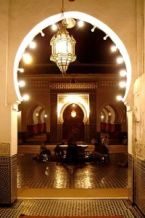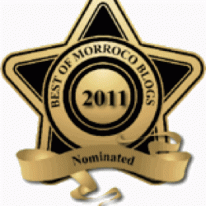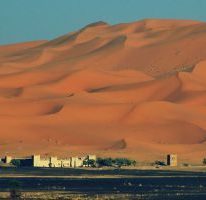
From 22-30 May 2015, the ancient city of Fes will host the 21st edition of its world famous Sacred Music Festival. The origins of Fes lie in the 8th century by Idris I, who is known for bringing the religion of Islam from Arabia in the East, to Morocco. Fes’ spiritual credentials were boosted by the establishment of the al-Qarawiyyin (or al-Karaouine) University, mosque and madrasa (religious school). It became one of the spiritual and educational centers of the Muslim world and remains today the longest-standing university in the world. Fes‘ role as the spiritual hub of Morocco is underscored by its historical role as the seat of Islamic learning in the Kingdom and an openness towards other cultures and religions. These factors make it the perfect location for two of Morocco’s most well-known festivals: the Fes Festival of Sufi Culture (18-25 April 2015) and the Fes Festival of World Sacred Music (22-30 May 2015). (Note: This year’s Sacred Music Festival is being held a few weeks early to avoid a clash with the Holy month of Ramadan. It is normally held in June).
This year’s 21st edition of the Sacred Music Festival has as its theme ‘Fes: An African Reflection.’ The aim is to connect Fes to its broader African and Islamic spiritual heritage. In addition to the opportunity to see Sufi musicians and practioners from across the Islamic world, the Festival will musicians and artists of other spiritual traditions in a range of impressive indoor and outdoor venues. The program boasts a selection of artists which is much broader than the title would suggest – audiences will be treated to Indian, Persian, Scottish and American artists as well as a great number of North and West African musical and spiritual performances.
A particular highlight will be the opening night (Friday 22 May), an event entitled “Fes in search of Africa”, which will feature some world class Moroccan and West African musicians including Driss al Maloumi (Oud), Ballaké Sissoko (Kora) and Chérifa (Tamazight song from Morocco’s Middle Atlas region) as well as artists from South Africa, Egypt, Burkina Fasso, Senegal, Mauritania, Mali, French Guyana and more.

Afternoon concerts are held in the garden of the Batha Museum. These include a tribute to the great Sufi master, Rumi , in the Persian Kurdish tradition by the Payiz Ensemble of Iraq on Saturday 23 May and the fabulous Julie Fowlis of Scotland, who sings haunting melodies in her native Scots Gaelic language on the Sunday. Monday will see an unusual and inspirational collaboration between Malian Ballaké Sissoko on kora and Debashish Battacharya on Indian slide guitar.
The larger evening concerts are held at Bab al Makina, an open-air parade ground near the Royal Palace. Saturday night will see a meeting between the bagpipes of Brittany, France and the folk music of Tissa, in Morocco’s northern Rif mountains. On Sunday, Malian diva Oumou Sangare and Tiken Jah Fakoly, master of African reggae from Ivory Coast will celebrate the festival’s African theme in their joint concert.

Monday night (25 May) sees the first of the Night in the Media events, with Eduardo Ramos of Portugal exploring the rich cultural tapestry of Arabic, Sephardic Jewish and Andalusian music across the Iberian Peninsula and North Africa.
Fans of Cuban music are in for a double treat! On Monday evening Cuban pianist and musical innovator Omar Sosa returns once again to Morocco for the premier of Marassam with Tamango (urban tap dance, USA & French Guyana), Rodrigo (percussion, Cuba) and Jean de Boysson (visuals, France). The following afternoon’s concert features Roberto Fonseca and one of Mali’s latest musical exports to global stages, Fatoumata Diawara. The two are bound to create an explosive and colorful collaboration!
The concerts of Night in the Media II on Tuesday 26th at Dar Adiyel will feature artists from China and Azerbaijan, while elsewhere on the same evening, Tunisian singer Sonia Mbarek will present the premiere of her work based on Sufi poetry, Wajd. The Tuesday evening Batha Museum concert will explore the common roots of Andalusian music and Flamenco, featuring Benjamin Bouzaglou, star of the modern Arabo-Jewish Andalusian music scene.
Night in the Medina III on Wednesday night features the epic Hilal story from the Poets of Upper Egypt, as described by Leo Africanus, 16th century explorer of North Africa. His history is intimately connected to that of the city of Fes: he came to Fes from his native al Andalus (modern-day Spain) at the time of the Spanish Inquisition and expulsion of Muslims and Jews. He went on to study at the University of Al Karaouine before beginning an illustrious diplomatic and travelling career, during which he documented the geography of Africa. Other Wednesday night events feature artists from Tamil Nadu, India as well as Sardinian and Corsican representatives of Mediterranean traditions.
Thursday’s program features elements as diverse as flamenco, Moroccan Arabic musical traditions and the big attraction at Bab Makina – The Temptations with Dennis Edwards, presenting their own style of Rhythm and Blues to a whole new audience.
All of Friday’s events draw on North African and Spain’s Andalusian heritage, including music from Algeria and another opportunity to see flamenco traditions. The evening concert is a grand spectacle of Arabo-Andalusian tradition featuring many of the Festival’s North African artists.
Saturday’s schedule showcases Syrian Muwashshah traditions of Arabic poetry and music; gospel with an African touch, and the final concert with Hussain Al Jasmi of the United Arab Emirates.
As the diverse program suggests, the Fes Sacred Music Festival takes a very broad and inclusive view of the sacred and of the importance of indigenous and non-tangible elements of global heritage. There is surely something to satisfy many musical and artistic interests, but also plenty of opportunity to discover lesser-known musicians and artistic genres.
On a practical note, Fes gets very busy during this Festival. Visitors are advised to book accommodation early. Tickets are not yet available online but will be soon and can be purchased for individual events or for the Festival as a whole. Seating is not allocated, so arrive at venues early to avoid disappointment. Some venues are more comfortable than others and some are outside, so dress appropriately and bring something to sit on! There is no afternoon concert on the Wednesday. This is a great time to relax in the Fes medina or take an excursion out of town to nearby Meknes or Volubilis.
Fes is an impressive city in any season, but with the fabulous line up for 2015, a trip to the 21st Fes Sacred Music Festival is an opportunity not to be missed!
Written by Lynn Sheppard
Lynn Sheppard has lived in Essaouira, on Morocco’s Atlantic Coast for more than 2 years, supporting local non-profits, writing and becoming an expert on all things Swiri (ie. Essaouiran). She blogs at Maroc-phile.com and for other travel industry clients.
For more information about the Fes Festival of World Sacred Music or a Fes Tour
For more information about the Program for the Fes Festival of World Sacred Music
Morocco’s Imperial Cities, Seaside Resorts,Sahara Desert,Berber villages, A Taste of Morocco, Magical Kasbahs, Ruins & Waterfalls, Absolute Morocco, The Best of Marrakech, Fes, and Ouarzazate






